Four Rivers documentary on addiction looks to show ‘more of a human side’
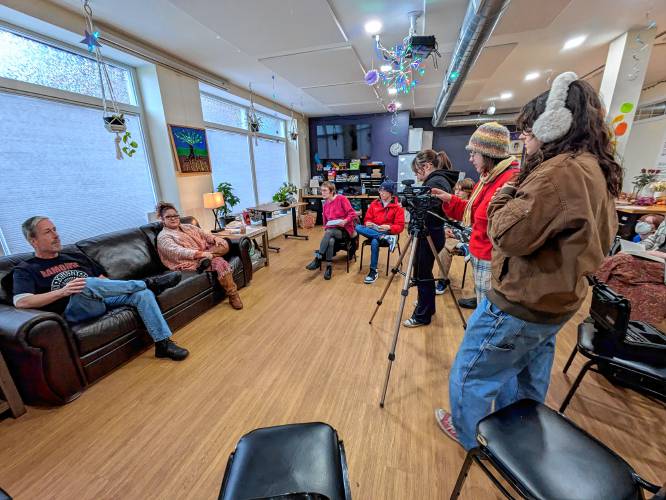
Four Rivers Charter Public School seniors are premiering their documentary “Rethinking Recovery” at the Garden Cinemas on Thursday evening. Students undertook all aspects of the project, from initial planning to post-production. CONTRIBUTED PHOTO
|
Published: 02-11-2025 10:01 AM
Modified: 02-11-2025 7:15 PM |
GREENFIELD — The public is invited to the Garden Cinemas Thursday evening for the premiere of “Rethinking Recovery,” a documentary that Four Rivers Charter Public School’s senior class has been working to produce for the past five months.
The documentary explores the journey of people in recovery from substance use disorder through the lens of experts at addiction treatment centers, such as The RECOVER Project and individuals who are currently in recovery. Students conducted these interviews throughout the Pioneer Valley and in Boston.
Each year, the Four Rivers senior class produces a documentary, which has traditionally been focused on sustainability or climate change. This year’s class opted to shift the focus to a topic affecting millions of Americans every day.
“It’s affected a lot of people. It’s prevalent in our communities, it’s prevalent in our lives,” said Rhea Sawicki, a member of the senior class.
“Rethinking Recovery” will premiere at the Garden Cinemas on Thursday at 7:30 p.m. Tickets are $11.50 for adults and $8.50 for children under 12. Proceeds will go toward connecting Four Rivers students, staff and families with local experts on addiction support. The documentary is about 35 to 40 minutes long and will be followed by a behind-the-scenes look at the students’ film-making process.
Fellow senior J Mayo added that one of the goals of “Rethinking Recovery” is to destigmatize addiction.
“Even though the world has become more awoken to different experiences, I think addiction still has a lot of stigma,” Mayo said. “I think it’s really important to our class that we’d like to show more of a human side of people by reflecting honestly on their experiences.”
The documentary explores the stories of recovery and recovery providers, while highlighting the power of community as one of the main themes throughout the project.
Article continues after...
Yesterday's Most Read Articles
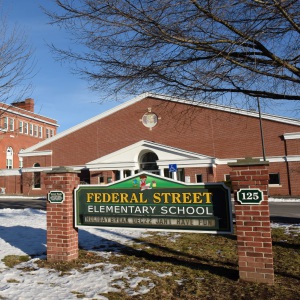 Federal Street School substitute teacher alleged to have called student racial slur
Federal Street School substitute teacher alleged to have called student racial slur
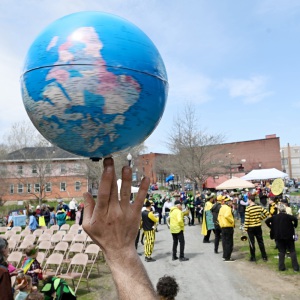 PHOTOS: Greenfield celebrates Earth Day with parade, festivities
PHOTOS: Greenfield celebrates Earth Day with parade, festivities
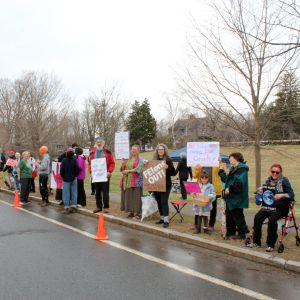 Local protests against Trump administration continue as part of 50501 movement
Local protests against Trump administration continue as part of 50501 movement
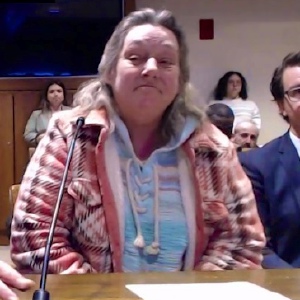 Mother whose daughter died in Holyoke marijuana facility backs bill for worker safety
Mother whose daughter died in Holyoke marijuana facility backs bill for worker safety
 Greenfield Police Logs: March 25 to April 6, 2025
Greenfield Police Logs: March 25 to April 6, 2025
 HS Roundup: Mohawk Trail softball earns first win of the season following 16-4 victory over Mahar
HS Roundup: Mohawk Trail softball earns first win of the season following 16-4 victory over Mahar
“It looks different for everyone and I think that’s pretty powerful,” student Loie Acton said of the addiction recovery process, emphasizing the importance of community and supporting others. “Showing up for people matters.”
On top of trying to destigmatize substance use disorder, the documentary also served as a learning opportunity for the students, as they were responsible for all stages of the production process from initial planning to the post-production work they were finalizing on Monday.
And, due to the sensitive and personal nature of addiction, it also taught the students the social skills they needed to make folks feel comfortable sharing their stories, according to Acton.
“I really appreciated the trust that each of the people we interviewed gave us and I was really glad that we were able to cultivate that space so they felt comfortable enough to share some of the hardest parts of their lives and let it be recorded for us,” Acton said. “Knowing how to do that in a kind and supportive manner and make sure we’re doing justice to everything they say, that was a really important skill to learn and something that I just generally appreciated about the whole thing.”
Once the documentary is screened, the work isn’t over, either, as Sawicki said the class is looking into organizing a “trauma-informed, hands-on opioid overdose response training workshop” that will also touch on the topics of stigma and language around substance use disorder.
“There’s a lot of systematic changes that need to be made that we, as very young adults, can’t make,” Sawicki said. “But this [workshop] is something that we can do: educate the people around us in these types of situations.”
Chris Larabee can be reached at clarabee@recorder.com.






 Annual ArtsNight showcases GCC students’ creative talent
Annual ArtsNight showcases GCC students’ creative talent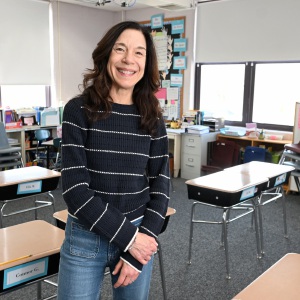 ‘I can’t picture another job’: Northfield Elementary teacher earns Excellence in Teaching Award
‘I can’t picture another job’: Northfield Elementary teacher earns Excellence in Teaching Award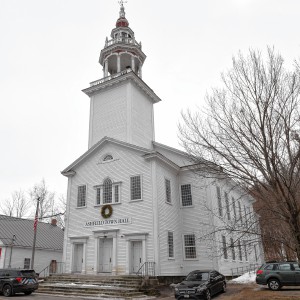 Ashfield voters to consider debt exclusion for retaining wall fixes, series of advisory questions
Ashfield voters to consider debt exclusion for retaining wall fixes, series of advisory questions
